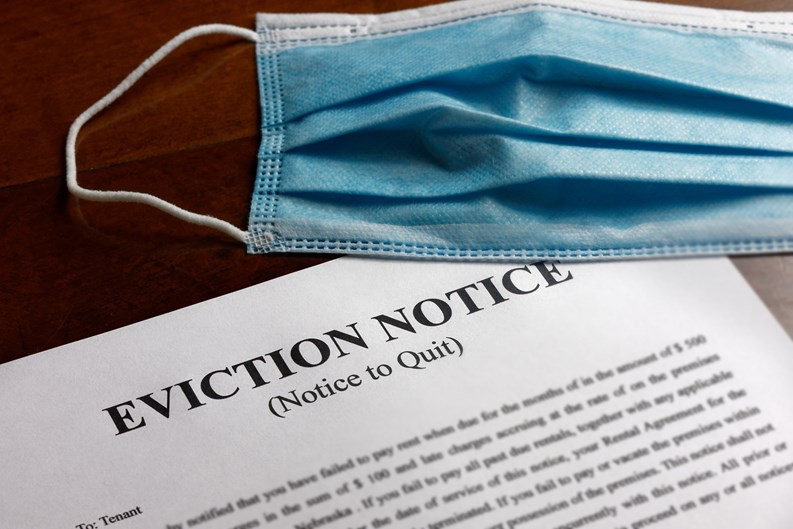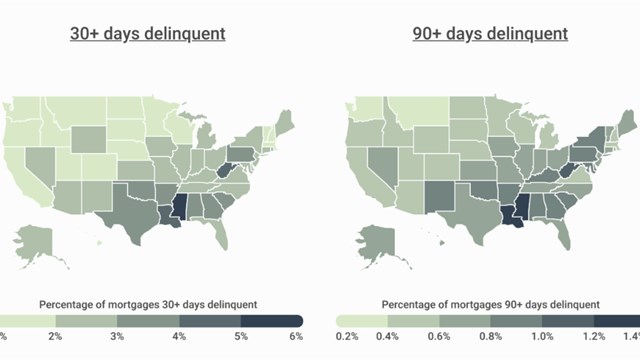At this time last year, many states initiated a series of eviction moratoriums, with governors issuing executive orders to prevent certain residential tenants from losing their homes to eviction during the coronavirus pandemic. On September 4, 2020, the Centers for Disease Control and Prevention (CDC) enacted a nationwide order titled “Temporary Halt in Residential Evictions to Prevent the Spread of COVID-19”— an eviction moratorium that applied to all 50 states and superseded any state-level gubernatorial orders.
The 2021 Consolidated Appropriations Act, enacted by Congress and signed by former President Trump on December 27, 2020, extended the CDC eviction freeze to January 31, 2021. But when the Biden administration assumed office earlier that month, the moratorium was extended further, to March 31, 2021. On January 20, 2021, the day of President Biden’s inauguration, newly-installed CDC Director Rochelle P. Walensky announced the extension, describing it as a public health measure to protect the nation from the COVID-19 pandemic, which “has presented a historic threat to our nation’s health” and “triggered a housing affordability crisis that disproportionately affects some communities.”
“Despite extensive mitigation efforts,” Walensky continued in a media statement, “COVID-19 continues to spread in America at a concerning pace. We must act to get cases down and keep people in their homes and out of congregate settings—like shelters—where COVID-19 can take an even stronger foothold.”
On March 28—three days before the scheduled expiration date—the CDC extended its nationwide eviction moratorium order again - this time through June 30, 2021. This action took place one day before a ruling by the Sixth Circuit—the first federal appellate court to weigh in on legal challenges to the CDC moratorium, notes national law firm Seyfarth Shaw—that denied an emergency stay filed by the federal government in its appeal to a court decision that determined that a federal eviction ban does not comport with congressional statute.
In other words, the government all but lost its appeal to a charge that it violated the Administrative Procedure Act in exceeding the authority granted to the CDC under the Public Health Service Act. The Act gives the Department of Health and Human Services (and, by extension, the CDC) authority to impose property restrictions that are intended to mitigate health risks. In its March 29 ruling in the matter of Tiger Lily, LLC v. HUD, the United States Court of Appeals for the Sixth Circuit determined that a nationwide eviction moratorium was not similar enough to the other measures provided by the statute (such as fumigation, disinfection, and sanitation), and therefore the CDC Director does not have the authority to ban evictions.
For now, the CDC moratorium—which “subjects landlords and property owners to possible criminal and civil penalties if they proceed with actions to evict certain ‘covered’ residential tenants affected by the COVID-19 pandemic for nonpayment of rent,” per Seyfarth—is still in effect, with the June 30, 2021 expiration date. The CDC cited “the emergence of COVID-19 variants in the United States, studies on the impacts that evictions have on housing, migration, and homelessness across state lines, and findings that its action would directly mitigate the further spread of COVID-19” to support its order.
As Seyfarth notes in its post, the Sixth Circuit’s ruling is more of a procedural decision—not a reflection of the merits of the case. “Nonetheless,” conclude the firm’s attorneys, “...the Sixth Circuit has all but ruled that the United States will lose its appeal” and is likely to lose another appeal it’s pursuing in the matter of Terkel v. CDC—which similarly ruled against the government—in the Fifth Circuit.










Leave a Comment